Dev kit supports Linux RapidIO
August 21, 2006![]() Embedded Alley claims its new RapidIO development kit is the first one based on open-source software. The Linux RapidIO Development Kit (LRDK) supports a PowerQUICC III-based blade that targets network security and virtual storage applications, and includes a Linux kernel with RapidIO support. (more…)
Embedded Alley claims its new RapidIO development kit is the first one based on open-source software. The Linux RapidIO Development Kit (LRDK) supports a PowerQUICC III-based blade that targets network security and virtual storage applications, and includes a Linux kernel with RapidIO support. (more…)
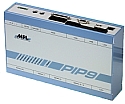 MPL AG has added a new model to its line of “Packaged Industrial PCs” (PIP). The PIP9 is based on a 1 GHz Celeron M processor, and boasts an extensive set of “PC compatible” functions in a compact, industrial-strength package, according to the Switzerland-based company.
MPL AG has added a new model to its line of “Packaged Industrial PCs” (PIP). The PIP9 is based on a 1 GHz Celeron M processor, and boasts an extensive set of “PC compatible” functions in a compact, industrial-strength package, according to the Switzerland-based company. 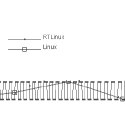 This whitepaper describes the development of a real-time data-acquisition application using a real-time Linux implementation along with an off-the-shelf data-acquisition board.
This whitepaper describes the development of a real-time data-acquisition application using a real-time Linux implementation along with an off-the-shelf data-acquisition board. 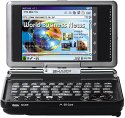 Sharp's Linux-based Zaurus PDA was ahead of its time, and can still compete with modern Linux-based handhelds such as the
Sharp's Linux-based Zaurus PDA was ahead of its time, and can still compete with modern Linux-based handhelds such as the  PC silicon vendor Via Technologies is holding a contest that encourages “girls” of any age (over 18) to hone their gaming skills at a world-class gaming facility in Sweden, where they'll be treated to some high-powered gaming training with Via's “girlz 0f destruction” gaming ambassadors.
PC silicon vendor Via Technologies is holding a contest that encourages “girls” of any age (over 18) to hone their gaming skills at a world-class gaming facility in Sweden, where they'll be treated to some high-powered gaming training with Via's “girlz 0f destruction” gaming ambassadors. 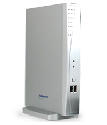 Neoware, a vendor of Linux-powered thin clients, recently published a whitepaper making the case that server-based thin client computing “can dramatically improve data security at the desktop,” compared to the use of standard PCs in a networked environment.
Neoware, a vendor of Linux-powered thin clients, recently published a whitepaper making the case that server-based thin client computing “can dramatically improve data security at the desktop,” compared to the use of standard PCs in a networked environment.  Tech Soft 3D has announced a new release of its high-level graphics framework software for developing high-performance, interactive 2D/3D applications. Version 14.0 of HOOPS 3D Application Framework (HOOPS/3dAF) is supported on a range of operating systems including Linux.
Tech Soft 3D has announced a new release of its high-level graphics framework software for developing high-performance, interactive 2D/3D applications. Version 14.0 of HOOPS 3D Application Framework (HOOPS/3dAF) is supported on a range of operating systems including Linux. 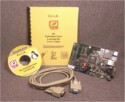 Intellimetrix, a specialist in real-time and embedded software development and training, has introduced a low-cost embedded Linux learning kit. Aptly named the Embedded Linux Learning Kit (ELLK), the kit comprises an ARM-based SBC (single-board computer), cables, power supply, Linux OS, development tools, and comprehensive…
Intellimetrix, a specialist in real-time and embedded software development and training, has introduced a low-cost embedded Linux learning kit. Aptly named the Embedded Linux Learning Kit (ELLK), the kit comprises an ARM-based SBC (single-board computer), cables, power supply, Linux OS, development tools, and comprehensive… 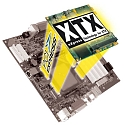 The XTX Consortium has released revision 1.1 of the specification for XTX, one of several alternative upgrade paths to the popular ETX computer-on-module (COM) standard. The latest revision includes the complete definition of all signals as well as detailed mechanical descriptions, according to the consortium.
The XTX Consortium has released revision 1.1 of the specification for XTX, one of several alternative upgrade paths to the popular ETX computer-on-module (COM) standard. The latest revision includes the complete definition of all signals as well as detailed mechanical descriptions, according to the consortium.